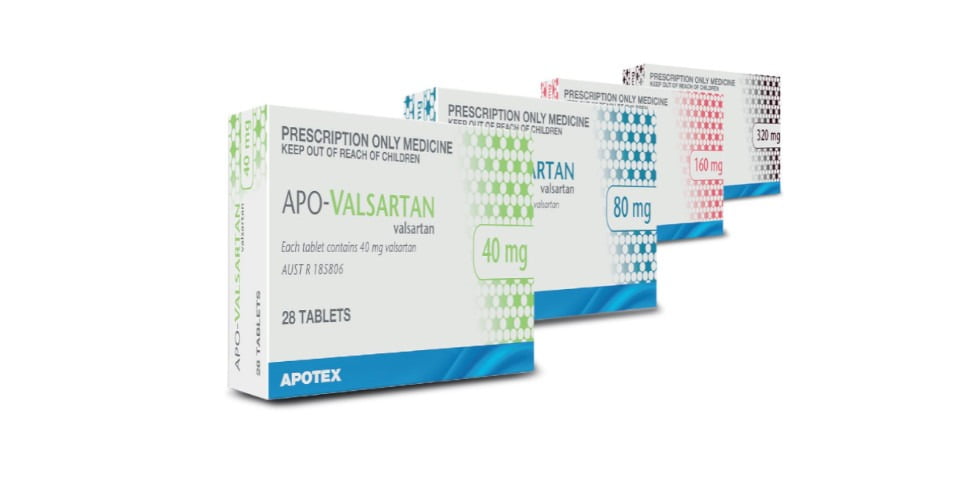Apotex, in consultation with the TGA, is recalling all batches and strengths of the company’s supplied APO-Valsartan tablet blister packs due to the presence of trace elements of an impurity.
The products being recalled comprise:
• APO-Valsartan 40mg tablets (AUST R 185806).
• APO-Valsartan 80mg tablets (AUST R 185814).
• APO-Valsartan 160mg tablets (AUST R 185821).
• APO-Valsartan 320mg tablets (AUST R 185826).
[TGA Ref No: RC-2018-RN-01525-1].
Valsartan is an off-patent ingredient used in generic medications to treat hypertension (high blood.pressure) and other heart-related disorders.
As a precautionary measure, APO-Valsartan is being recalled due to the N-Nitrosodiisopropylamine (NDIPA) impurity in the finished products. NDIPA belongs to the N-nitroso chemical class known to contain mutagens and carcinogens.
Based on information available to Apotex to date, the company expects the health risk posed by the use of APO-Valsartan tablets to be very low.
Patients returning affected packs of APO-Valsartan should be given a full refund, and offered an alternative equivalent product by their pharmacist, or referred to their doctor immediately.
Apotex says patients should not stop or change their medication without first visiting a doctor or pharmacist.
“We sincerely regret any inconvenience caused by this incident to both our customers and consumers, and thank all parties for their understanding, patience and support of Apotex’s ongoing commitment to ensuring public health and safety,” Apotex Managing Director, Asia Pacific, Roger Millichamp said.
“We are notifying our distributors and customers about the recall in writing, placing advertisements in consumer print media, and calling for the immediate return of all APO-Valsartan products,” Mr Millichamp said.
For questions pertaining to the APO-Valsartan product recall, contact Apotex customer service on 1800 276 839 to coordinate a refund.








